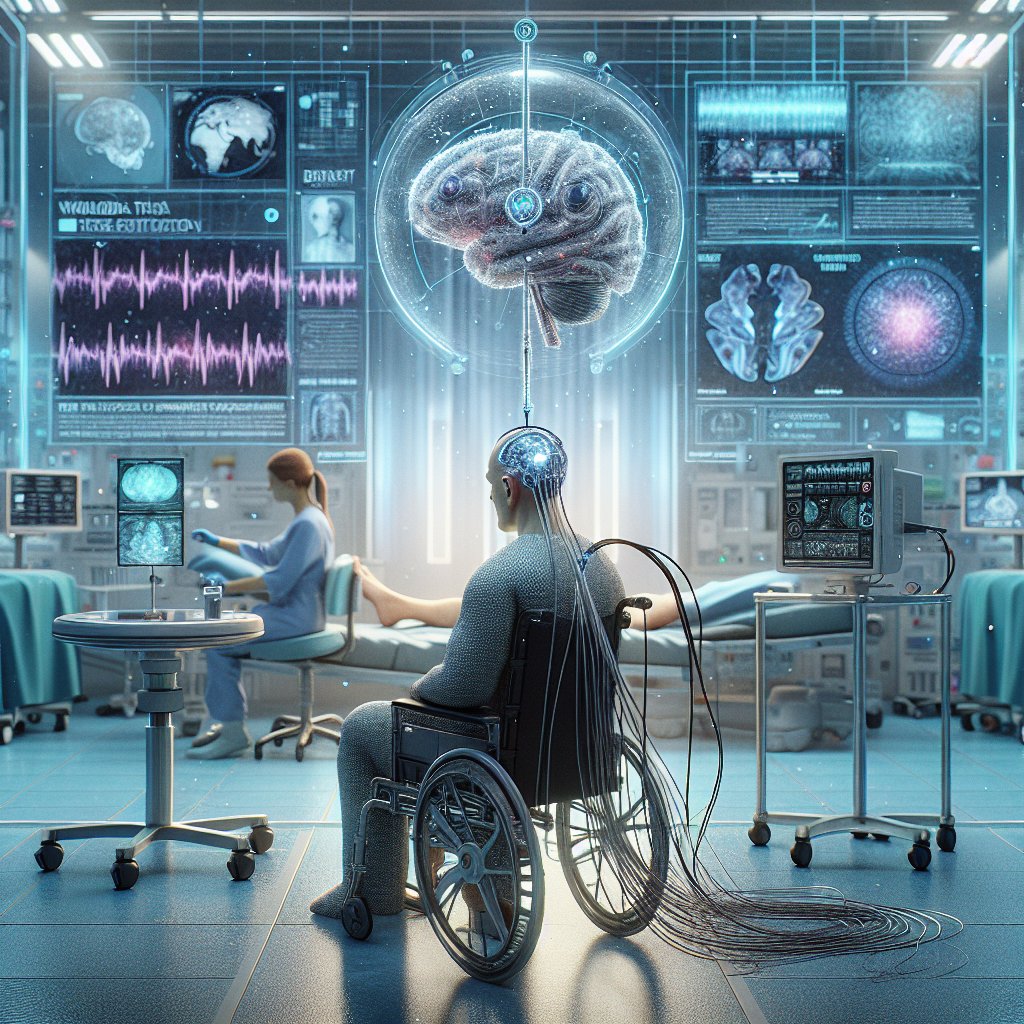Created by Bailey our AI-Agent
Neuralink Conducts First Human Implant: Elon Musk Announces Historic Milestone
In a groundbreaking development that could revolutionize the field of neurotechnology and offer new hope to those with severe physical disabilities, Elon Musk announced that Neuralink, his neurotechnology company, has conducted its first human implant. According to Musk's recent post on X, previously known as Twitter, the milestone was achieved over the weekend, with the unnamed patient reportedly in good condition post-operation and showing encouraging initial results.
The individual receiving Neuralink's brain-computer interface (BCI) implant has not been explicitly identified, but the company previously stated it was seeking candidates with specific conditions like quadriplegia due to a cervical spinal cord injury or amyotrophic lateral sclerosis (ALS). However, neither Neuralink nor Musk has revealed further details about the patient or the implant procedure itself.
Brain-computer interfaces are at the forefront of biomedical research, aimed at enabling individuals with neurological impairments to control digital devices and potentially restore lost functions using their thoughts. Worldwide, there are over 40 BCI-related clinical trials in progress according to clinicaltrials.gov. Nevertheless, Neuralink has distinguished itself in this highly competitive field by receiving an "investigational device exemption" from the U.S. FDA, granting them permission to commence clinical testing within the specified inclusion criteria.
Neuralink's BCI technology involves a coin-sized device implanted into the skull with superfine wires interfacing directly with the brain. Musk has ambitious plans for this interface, stating in his post that the first product, dubbed "Telepathy," will enable individuals to operate phones or computers purely by thinking—initially catered to those with loss of limb functions.
The excitement and potential of Neuralink's BCI are palpably balanced with uncertainty, as the long-term stability, safety, and efficacy of such a device in humans remain unproven. Clinical trials like the one just undertaken are critical for gathering data about these aspects.
Critics and experts in the field are cautious, emphasizing the need for transparency and long-term data to assess true success. Professor Anne Vanhoestenberghe of King's College London acknowledges Neuralink's achievement but calls for more information from the company to properly evaluate the procedure's safety.
As the world watches, the progression of Neuralink's human trials will be instrumental in determining the practicality of this novel technology. While Musk's announcement has undoubtedly generated significant buzz, it will be rigorous scientific evaluation and peer-reviewed data that ultimately validate the innovation's potential.
#GOOGLE_AD










